Ria's Journey to Becoming a Higher Level Teaching Assistant Online
Navigating career progress can feel like a riddle waiting to be solved at times. For Ria, a recent student of...
Prepare for a degree in Social Sciences with this Level 3 Access to Higher Education diploma, equivalent to three A Levels. Gain up to 144 UCAS points while studying psychology, sociology, criminology and social policy. Flexible online learning with no exams and expert tutor support makes this an ideal pathway to university and diverse career opportunities.

Access to Higher Education Diploma - Social Science
Choose a study format
Choose a way to pay
The Access to Higher Education Diploma – Social Science provides an excellent opportunity to pursue a degree in various Social Science disciplines, such as Psychology, Sociology, Anthropology, Criminology, Politics and Economics. Designed for learners aspiring to work in fields like education, health, journalism, research, public services, or the voluntary sector, this course equips you with foundational knowledge and skills tailored to university entry requirements.
The diploma comprises up to 60 credits, with a structured balance between graded and ungraded credits to ensure comprehensive learning. This programme is particularly suitable for adult learners returning to education or those without traditional qualifications. With no formal exams, assessments focus on practical applications, essays and tutor-reviewed projects, ensuring you develop both academic and practical competencies.
Study from the comfort of your home while receiving robust support from expert tutors and a dedicated student services team. This course is the perfect gateway to a fulfilling career in Social Sciences.
Qualification Title: Access to Higher Education Diploma – Social Science
Qualification number: 40011537
Total Credits: Up to 60
UCAS Points: Up to 144
Graded Units
Sociology:
Unit 1: Access to Health Care in Modern Britain
Unit 2: Changing Beliefs in British Society
Unit 3: Culture and Subculture in the UK
Unit 4: Delivery of Health Care in the UK
Unit 5: Sexual Health in the UK
Unit 6: Education and Social Inequality
Unit 7: Exploring Social Policy
Unit 8: History of Social Policies
Psychology:
Unit 9: The Nature-Nurture Debate
Unit 10: Cognitive Development
Unit 11: Psychological Perspectives
Unit 12: Stereotyping, Prejudice and Discrimination
Criminology:
Unit 13: Criminal Justice and Social Policy
Unit 14: Social Control, Discipline and Regulation
Unit 15: Sociological Explanations of Crime
Ungraded Units
Developmental:
Unit 16: Communication – Academic Essay Writing
Unit 17: ICT – Word Processing
Unit 18: ICT – Using Presentation Software
Unit 19: Professional Behaviours
Unit 20: Study Skills – Developing Research Skills
The course is assessed through a series of assignments at the end of each unit, designed to test your knowledge and competence.
Assignments are graded by expert assessors, helping you develop skills essential for higher education.
All coursework is submitted online, supported by a personal tutor.
To enrol, you must be at least 17 years old and have a minimum of a grade C/4 in GCSE English Language and Maths (or equivalent Functional Skills Level 2 qualifications). You will also need access to a laptop/computer and the Internet for course completion.
It serves as a suitable entry point for individuals looking to transition into social sciences at a higher level. However, we recommend checking university entry requirements for your next course to ensure eligibility.
Open Awards
Open Awards is a UK-based awarding body regulated by Ofqual. They provide a range of qualifications, including Access to Higher Education Diplomas, recognised across the UK by universities and employers.
You’ll receive guidance and support from a personal, expert tutor throughout the course. Our team is here to assist you with any questions, provide detailed feedback and help you achieve your goals every step of the way.
This is a question that our team are often asked, there are many reasons but here are the main reasons to choose Association of Learning:
If you need any more reasons to choose Association of Learning, contact our team!
There are two payment options, pay in full for your course or monthly. Our monthly payment option allows you to spread the cost of your course over a 10 month period.
If you choose to pay using a payment plan, to apply you must be able to answer yes to the following:
No, this is a distance learning course, which means your assessments will be submitted and marked using our online LMS (Learner Management System).
Unlike other providers, Association of Learning use a fast-track system to get your certificate to you within six weeks (our average is two weeks).
Your course will start as soon as you sign-up. You could start your journey of learning today!

Rated #1 on Trustpilot
Study A Levels, GCSEs, Qualifications, and Endorsed Courses
14-day money-back guarantee (terms apply)
Study at your own pace in your own space, without pressure
Ria's Journey to Becoming a Higher Level Teaching Assistant Online
Navigating career progress can feel like a riddle waiting to be solved at times. For Ria, a recent student of...


